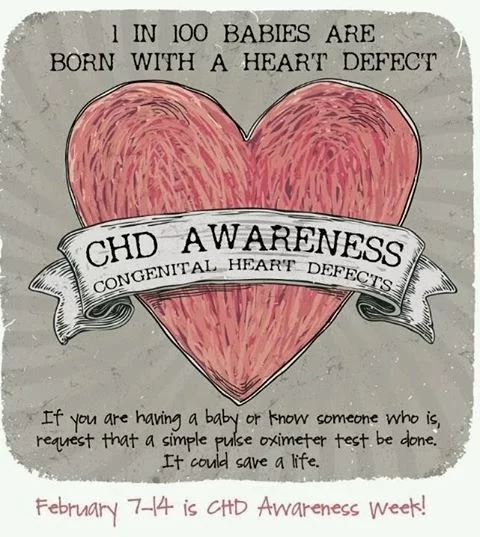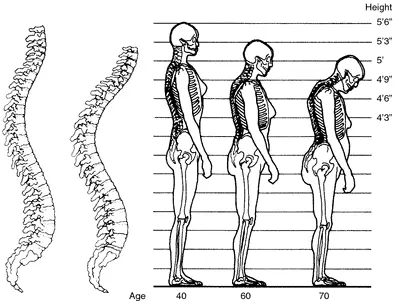Vitamin A Deficiency
What is Vitamin A Deficiency?
A Vitamin A Deficiency is when the body does not have enough of the vitamin to function properly. This deficit may affect tissues, the immune system, the skin, the heart, and the lungs, which may result in blindness and visual loss.
What are the effects of Vitamin A Deficiency?
Vitamin A affects people who have problems that prevent their body from properly absorbing vitamins, such as liver disorders. A large fraction of people in many underdeveloped nations do not get enough vitamin A. Pregnant or nursing women, children, and infants are especially at risk. Interestingly, one of the main causes of childhood blindness worldwide is a shortage of vitamin A.
What is Vitamin A?
Vitamin A is essential for good vision, cell formation, and metabolism, among other bodily functions. Since the body is unable to create it on its own, vitamin A must be consumed in order to support healthy immunological and reproductive systems. Particularly important for vision, vitamin A facilitates the synthesis of certain pigments required for the best possible retinal function. A deficiency in vitamin A can prevent these pigments from forming, which can result in night blindness.
Vitamin A is also essential for keeping the corneas properly hydrated, avoiding damage that could cause blindness, and preventing dry eyes. Vitamin A supports healthy skin, lungs, intestines, and urinary system linings in addition to eyesight. It is also essential in bolstering the immune system and offering defense against illnesses.
What are the various forms of Vitamin A?
Two different types of vitamin A exist. The first is retinol, or preformed vitamin A, which is found naturally in animal products such as eggs, fish, chicken, beef, and liver. This important vitamin is also added to fortified cereals and dairy products.
Provitamin A carotenoids, which come from plant sources, are the second type. The pigments called carotenoids are what give fruits and vegetables their yellow, orange, and red colours. People who eat these plant-based meals progressively transform carotenoids into vitamin A in their bodies. Beta-carotene is the most prevalent kind of carotenoid.
What causes Vitamin A Deficiency?
A deficit of vitamin A arises from consuming insufficient amounts of the vitamin through diet. While rare in the United States, it is frequent in underdeveloped nations where there is limited access to foods high in vitamin A. Furthermore, since the liver stores a large amount of the body’s vitamin A and malfunctions in liver function can affect storage, liver illnesses can also lead to a deficit in vitamin A.
Vitamin A insufficiency can also result from illnesses and disorders that impair the intestine’s ability to absorb fat, which lowers the body’s ability to absorb vital vitamins. Chronic diarrhoea, alcoholism, pancreatic or small bowel bypass surgery, zinc or iron deficiency, Crohn’s disease, celiac disease, cystic fibrosis, liver cirrhosis, Crohn’s disease, bile duct obstruction, and some pancreatic abnormalities are among these conditions. Infections can worsen the condition by reducing the body’s capacity to absorb vitamins, such as vitamin A.
Signs and symptoms of Vitamin A Deficiency
Nyctalopia, or night blindness, is a symptom of vitamin A deficiency that manifests early. It is distinguished by a person’s inability to see well in dim light yet being able to see normally in well-lit areas. Insufficient vitamin A is linked to a retinal disease that frequently causes night blindness.
Xerophthalmia: When a vitamin A deficit worsens, the cornea and whites of the eyes may become parched, impairing the body’s capacity to produce tears. This condition is referred to as xerophthalmia. The whites of the eyes may get bitot patches and frothy areas, and the corneas may get open sores called corneal ulcers or dry up and cloud over with keratomalacia, which can cause blindness.
Some common Symptoms of Vitamin A Deficiency
- Dry, scaly skin: Vitamin A is essential for the synthesis and maintenance of skin cells as well as for reducing inflammation brought on by skin conditions. Skin diseases like eczema, which are marked by dry, itchy, and inflammatory skin, may arise as a result of inadequate vitamin A intake. Clinical research indicates that a prescription medication containing vitamin A characteristics called alitretinoin may be useful in the treatment of eczema.
- Dry Eyes: Vitamin A deficiency is linked to various eye conditions, including dry eyes, and can result in serious disorders including blindness or corneal Bitot’s spots. The first indication of a vitamin A deficit is the incapacity to produce tears. It has been demonstrated that increasing vitamin A intake improves dry eyes, with large doses reducing the prevalence by 63%.
- Night Blindness: Vitamin A insufficiency frequently results in night blindness. Research suggests that taking vitamin A supplements enhances the body’s capacity to adjust to low light conditions. Women with night blindness improved significantly in one investigation after taking vitamin A pills orally or through food.
- Delayed Growth: Since vitamin A is necessary for healthy bodily development, children who receive insufficient amounts of it may experience restricted growth. Studies indicate that taking vitamin A supplements by themselves or in conjunction with other nutrients may promote growth. Growth may be more significantly impacted by vitamin A administration in combination with other vitamins and minerals than by vitamin A alone.
- Throat and chest infections: A deficit in vitamin A may be indicated by recurrent respiratory infections, particularly in the throat or chest. Supplementing with vitamin A may lower the incidence of respiratory infections, according to certain studies, but there may also be a higher risk of chest and throat infections. Beta-carotene and other provitamin A carotenoids may provide defence against respiratory infections.
- Poor wound healing: Because vitamin A is essential for the synthesis of collagen, low vitamin A levels can lead to poor wound healing. It has been demonstrated that vitamin A, both oral and topical, improves skin healing. Oral or topically applied vitamin A has been shown in rat and human studies to enhance wound healing and decrease wound size.
- Acne and breakouts: Vitamin A helps prevent and treat acne because it fights inflammation and encourages the creation of new skin cells. Acne has been associated with low amounts of vitamin A. Although oral drugs may cause mood swings and birth problems, topical and oral vitamin A treatments, such as isotretinoin or Accutane, can be used to treat acne.
Diagnosing Vitamin A Deficiency
Medical professionals use a blood test and symptom consideration to diagnose vitamin A deficiency. An electroretinography eye test may be prescribed in situations of night blindness in order to evaluate the reaction of light-sensing cells in the retinas, also known as photoreceptors. This examination sheds light on retinal function.
The blood is tested for vitamin A using a serum retinol blood test. If symptoms improve once vitamin A therapy is started, a vitamin A deficit can be confirmed. This diagnostic strategy guarantees a thorough evaluation of biochemical and clinical markers.
Treating Vitamin A Deficiency
In order to treat vitamin A insufficiency, doctors provide high dosages of the supplement over the course of many days. Lower dosages are then recommended until improvements in skin problems and vision are noted. Vitamin A tablets can help correct night blindness and lubricate the eyes again, but the scarring from corneal ulcers causes irreversible vision loss.
High vitamin A doses should be avoided in newborns due to possible injury, but under the supervision of their healthcare professional, adolescents can be treated with prescribed amounts.
Vitamin A supplementation loses some of its benefits once the serum retinol level rises above 30 mcg/dL. Instead, people should concentrate on eating foods high in vitamin A to avoid toxicity.
Dietary Sources of Vitamin A:
Making sure you consume enough foods high in vitamin A is essential for immune system health and eye health. Eggs are a particularly good source of vitamin A, containing about 1,000 IU per big egg. Large levels are found in fish like salmon, tuna, and sardines; a 3-ounce portion of salmon has almost 2,000 IU. One cup of milk contains around 500 IU of vitamin A. Dairy products include cheese, yoghurt, and milk. Another important source is dark leafy greens, such as spinach and kale, where one cup provides more than 1,000 IU.
Complications of Vitamin A Deficiency
A lack of vitamin A can result in a number of issues, such as:
- Eye Issues: A vitamin A shortage can result in blindness and vision loss because it is essential for several eye functions.
- Skin problems: Dry, scaly, and itchy skin can be caused by inadequate vitamin A.
- Infertility: Lack of vitamin A can lead to problems conceiving and infertility because it is essential to the reproductive system.
- Growth Problems: Vitamin A deficiency can cause delayed growth and developmental problems in children.
- Vitamin A Deficiency: Immune system deterioration can result in respiratory tract infections, which affect the throat and chest. It is imperative to address vitamin A levels in order to avoid and manage these issues.
Preventing Vitamin A Deficiency
Keeping a balanced diet that includes foods high in vitamin A is the best way to prevent vitamin A deficiency. Among the vitamin A sources that are found naturally are:
- Leafy greens and broccoli are examples of green vegetables.
- Veggies that are orange or yellow, such as squash, pumpkin, carrots, and sweet potatoes.
- Fruits with orange and yellow tones, such as papayas, mangos, oranges, and cantaloupes.
- Dairy items.
- Chicken, beef, and liver.
- Some types of fish, such as salmon.
- Eggs.
- Cereals enriched with vitamin A, including rice, potatoes, wheat, and soybeans.
For extra peace of mind, people may think about supplementing with vitamin A if necessary. This will guarantee they get the nutrients they need for general health and lower their risk of developing a vitamin A deficit.
Anticipating Effects of Vitamin A Deficiency
Some of the effects of a vitamin A deficit may be mitigated by increasing vitamin A consumption. Night blindness and dry eyes are two symptoms that might get better, but it’s important to remember that corneal ulcers cannot be healed.
It’s crucial to consume enough vitamin A-rich foods in addition to a vitamin A-containing dietary supplement. Inadequate intake of vitamin A can lead to long-term issues, such as irreversible visual loss. Vitamin A insufficiency can be considerably lessened by prioritizing a healthy diet and the right supplements.
FAQ
What are the symptoms of lack of vitamin A?
Blindness and loss of vision are possible.
Skin problems: Dry, scaly, and/or itchy skin can result from a vitamin A deficiency.
Infertility: Your reproductive system is greatly impacted by vitamin A.
Infertility and difficulties conceiving can result from a vitamin A deficiency.
What causes a vitamin deficiency?
Vitamin E and K deficiencies can arise from a diet heavy in processed foods and low in fresh fruits and vegetables. Being gluten-free, vegan, or vegetarian makes it possible to prevent vitamin deficiencies. It does, however, call for very meticulous preparation.
What should I eat if I have vitamin A deficiency?
Food Supplies
veggies in orange and yellow hues (carrots, sweet potatoes, pumpkin, and other winter and summer squash), as well as leafy greens (kale, spinach, broccoli),
Tomatoes.
Red bell pepper.
Cantaloupe, mango.
Beef liver.
Fish oils.
Milk.
Eggs.
What are the 4 signs of vitamin A toxicity?
Common side effects include fatigue, agitation, nausea, vomiting, and abdominal pain. Occasionally, the skin then peels. Alopecia of the eyebrows, dry, rough skin, chapped lips, and sparsely distributed, coarse hair are early signs of chronic poisoning.
Which are the five major functions of vitamin A?
Healthy skin, mucous membranes, skeletal and soft tissue, and teeth are all formed and maintained with the aid of vitamin A. Because it creates the pigments found in the retina of the eye, it is also known as retinol. Good vision is encouraged by vitamin A, especially in dim light. It contributes to a healthy pregnancy and lactation as well.
How can I increase vitamin A?
The highest preformed vitamin A concentrations are found in dairy products, eggs, fish, and liver. Leafy green vegetables, orange and yellow vegetables, tomato products, fruits, and certain vegetable oils provide most of the dietary provitamin A in the diet.
How does vitamin A help vision?
One of vitamin A’s most significant roles is in visual phototransduction, where it is an essential component of photopigment, the initial molecule that converts light photons into electrical signals.
What are 10 diseases caused by vitamin deficiency?
These comprise but are not restricted to, hypocalcemia, osteomalacia, rickets, beriberi, scurvy, vitamin K deficiency, pellagra, xerophthalmia, and iron deficiency.
Which fruit is rich in vitamin A?
Mangos, papayas, various squashes, carrots, sweet potatoes, and maize (not the white kinds) are examples of plant sources of vitamin A. Red palm oil and biruti palm oil are two more excellent sources of vitamin A. (Note: Vitamin A is degraded if these oils are cooked to remove their hue.)
How much vitamin A causes hair loss?
For adults and children over four, the recommended daily intake of vitamin A is 5,000 International Units (IU). A 24-hour supplement may have 2,500–10,000 IU. If you use more than that, there’s a chance some strands will come loose.
Reference
- Professional, Cleveland Clinic Medical. “Vitamin a Deficiency.” Cleveland Clinic, my.clevelandclinic.org/health/diseases/23107-vitamin-a-deficiency. Accessed 16 Nov. 2023.
- Vitamin a Deficiency. www.who.int/data/nutrition/nlis/info/vitamin-a-deficiency. Accessed 16 Nov. 2023.
- Rupapara, Hasti. “Vitamin a Deficiency – Cause, Symptoms, Treatment – Samarpan.” Samarpan Physiotherapy Clinic, 10 Apr. 2023, samarpanphysioclinic.com/vitamin-a-deficiency.







One Comment